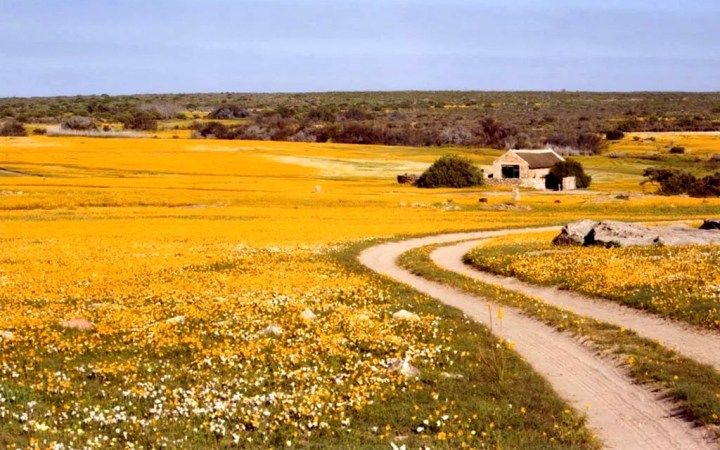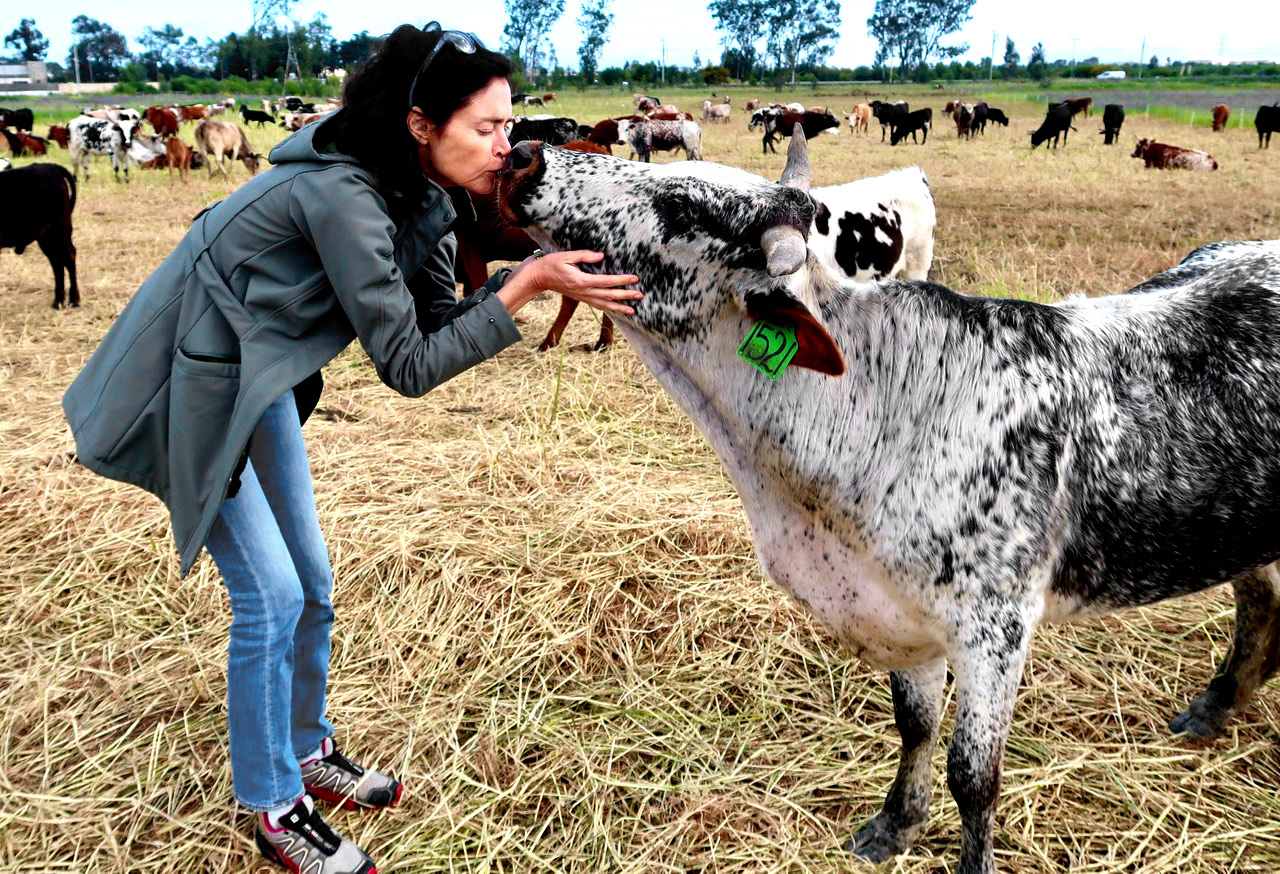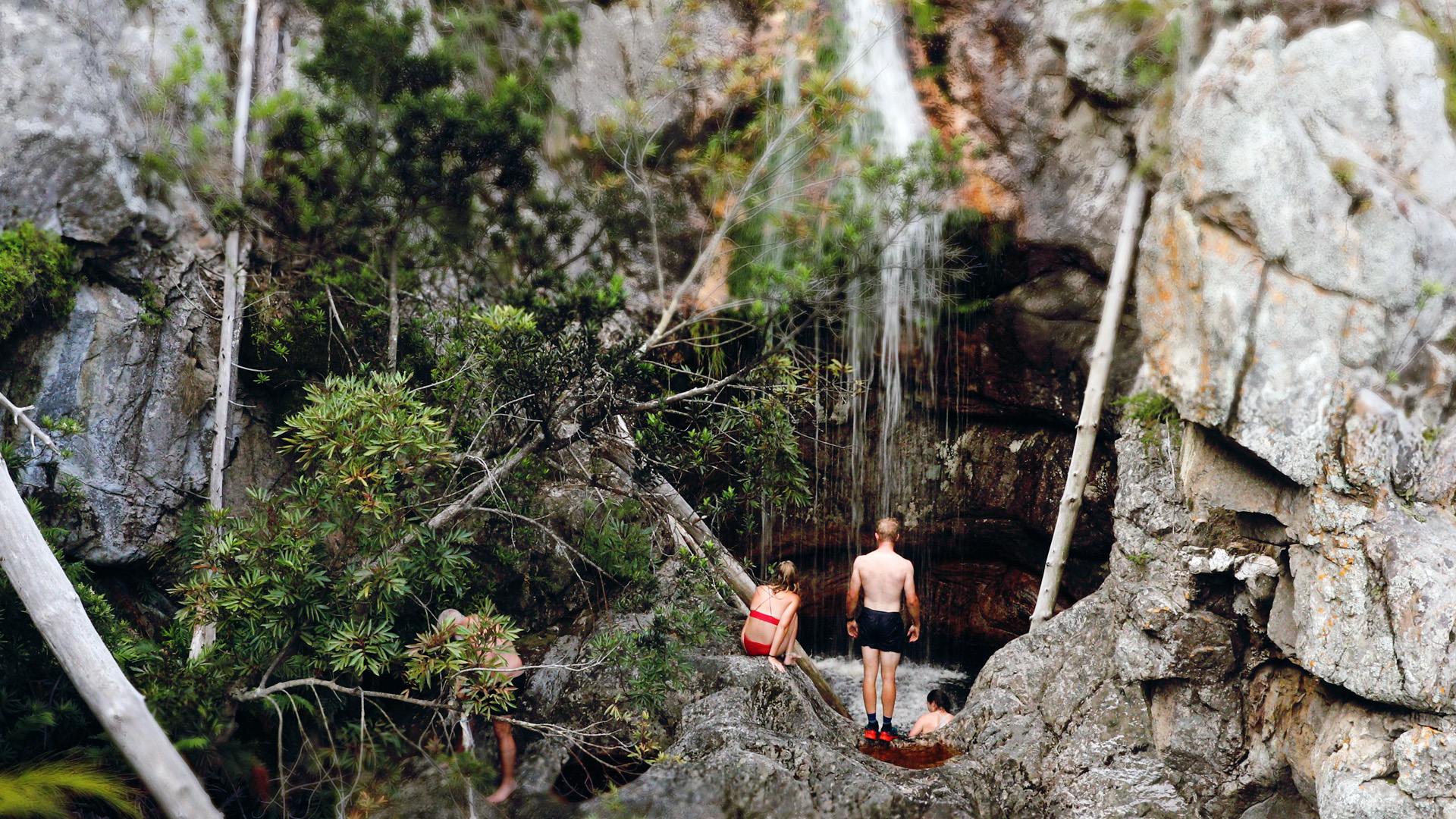GREENER PASTURES
Agritourism has power to establish rural South Africa as a hot tourist destination too

How many times have you driven past beautiful farmland on the N4 and wished you would get out and knock on the doors of those farmhouses hiding behind tree lines? Or while travelling in rural Venda and wished you’d stopped for coffee. Can it be done?
Despite major imbalances and inequality, which are widely documented, South Africa is still home to all kinds and varieties of farming. Of course, commercial agriculture is dominant, and has been for ages, but subsistence farming in many rural communities continues to endure.
The well-tended and picturesque Winelands of the Western Cape exist alongside productive subsistence holdings in places like Genadendal, for example.
It is possible, though not at the same scale, to develop these rural farming communities — from Limpopo to the Western Cape — into places of self-sustenance; beautiful and worth visiting.
Read more in Daily Maverick: Pals — the project sowing the seeds of success among emerging farmers
Agritourism Africa — a company that acts “as an information hub highlighting tourism experiences on farms across Africa, allowing local and international tourists to incorporate visits to these farms as part of their travel plans” — plays a role in the development of agricultural tourism in rural areas of all shades, in South Africa and the continent.
Founder Jacqui Taylor reveals what they seek to achieve and more in the lightly edited interview below.
***
Cebelihle Mbuyisa: The term is self-explanatory, it would seem. Agricultural tourism would, on the face of it, mean touring agricultural lands like one would, for example, visit a game park, etc.
How do you think of it at Agritourism Africa? How would you define what you do, or seek to do?
Jacqui Taylor: I grew up in a rural area where my parents were farm managers so I worked on the farm during school holidays (I had to go to boarding school). My school friends from cities loved spending the holidays with me on the farm. I saw how my friends who had family problems (parents were getting divorced etc) found being in natural surroundings helped deal with their stress. After school, I studied at night and worked in the tourism, hospitality and agriculture (on a wine farm) industries in fairly demanding environments. I was attending the International Federation of Agriculture Journalists Conference in South Africa in 2016 and one of the international journalists asked me if I could help him stay on an agritourism farm (a ‘real’ agricultural farm as opposed to a tourism theme park).
I researched and identified a gap in the market as nothing appeared when searching under “agritourism” on the internet. I founded Agritourism South Africa in 2016 as an Association and registered the trademark.
It was important to me to uphold the international agritourism focus on authentic agricultural farm activities, experiences and accommodation options. I received an invitation from Eurac to address the first International Agritourism Conference in Italy. The audience was very interested in agritourism initiatives throughout Africa and the business mushroomed organically.
The tourism industry, ironically, labelled agritourism as “Farm Stays”, which of course it includes but the focus is on rural tourism development in the agricultural space. Agritourism includes not only farm owners, but also farm communities, many of whom live close to rural towns.
Cebelihle: In the Western Cape (especially in the Winelands) a kind of agricultural tourism already exists. It’s a relatively wealthy region and there are resources for the development of roads and the tending of fields, etc. It is the picture of wealth (and people are drawn to that), in part.
Jacqui: The first wine route was created during the apartheid era and the tourism monies over the decades were spent on three common focus areas: Kruger National Park; Cape Town/Cape wine region and the Garden Route. Other beautiful areas in South Africa that would have been attractive to tourists were largely neglected in terms of governmental marketing spend. Yes, the Cape Wine Route is beautiful and I worked in the wine industry for several years, but the difference comes down to ‘land owners’ not necessarily being agricultural workers and/or managers). Many of these landowners are from countries overseas and are ‘tax avoidance’ investments. I believe our wines are world-class and I can definitely see the attraction of visiting wine farms.
Read more in Daily Maverick: Stellenbosch Wine Routes marks birth of SA wine tourism
Cebelihle: Which regions do you think have the potential to reach a pull such as some places in the Western Cape have? And do you envision a similar model of tourism and agricultural development in those places or regions?
Jacqui: Private funded Investment is required in other regions in South Africa where Municipalities are ‘dysfunctional’ and basic infrastructure (including roads) is non-existent or in a state of decay. Investors will only invest monies where an ROI [return on investment] is guaranteed. In other words, private funders are risk-averse. There are many other areas of concern for investors, land redistribution and/or land claims need to be factored in, as well as security/safety. It is important to understand agritourism refers to land being farmed for agricultural purposes. If there are water problems in regions, then the scope for agritourism is limited.
Read more in Daily Maverick: Farming in SA hobbled by power cuts and poor roads leaving rural towns hardest hit
Cebelihle: What projects have given you a great deal of satisfaction (since Agritourism Africa was founded)?
Jacqui: Always the people who drive/initiate/work on the projects. There has to be passion, enthusiasm, hard work and absolute dedication by the team. In Africa, definitely working with community projects driven by women-owned agricultural cooperatives in Rwanda, was inspirational. In Saudi Arabia, I enjoyed meeting and working with farmers in the Asir Province who were keen to embrace agitourism. In Namibia, it was working with the Uakii Project initiated by Peter-Hain Kazapua. In South Africa, the Elgin Agritourism Route, assisting Thabang Rabotho with the Tshwane route…honestly there are so many. I do agritourism training and projects online as well, as it is not always possible for me to travel.

Nguni cows are popular with photographers. (Photo: Agritourism)
Cebelihle: What projects do you still toss and turn over?
Jacqui: I am very concerned about the high levels of poverty in South Africa, a country that could be food secure, but we have millions of fellow South Africans who cannot afford to eat nourishing food even once a week. If infrastructure in rural areas allowed farmers to produce food which could be transported to markets effectively (within perishable time frames) then we could reduce hunger and poor nutritional diets, but the infrastructure in South Africa should be a very serious concern for every South African.
There is tremendous potential for agritourism in KZN, the Eastern Cape, Mpumalanga and Limpopo, but visitors to farms need to be able to drive to the farms safely on well-maintained roads.
Cebelihle: What support do you get from the different government departments here (in South Africa)?
Jacqui: Interesting question with a simple answer: “none”. Agritourism is misunderstood despite my years of explaining the basics. I can only assume there is a lack of will to understand agitourism. Booking agencies and the tourism businesses focus on farm stays, but farm stays — although an element included in the broader objective of agritourism — do not necessarily translate into benefiting rural communities. Agritourism is a holistic approach which includes diversification, alleviating rural poverty, providing employment opportunities for the youth and women and so much more. I am the co-chair of the Global Agritourism Network Committee on Agritourism Definitions, Standards and Criteria, so I have a global perspective on what agritourism could be in South Africa. The different departments, Department of Tourism and a separate Department for Agriculture, rural development and land redistribution, are problematic. Many of the countries in the GAN International network, have one government department which includes tourism, the environment and agriculture.
Cebelihle: We have seen, from your website, that you have undertaken several projects on the African continent. What would you say have been your highlights?
Jacqui: The people I have met are honestly exceptional in so many ways. There are several countries in West Africa, particularly Ghana and Nigeria that are pursuing agritourism in their Tourism Development Plans. In East Africa, Rwanda, Tanzania and Uganda have agritourism government policies. Africa is an agricultural continent and we have the most hospitable, genuine agritourism-friendly people who are proud of their culture, food, crops etc. It is such an honour to work with phenomenal and passionate fellow Africans. DM
Cebelihle Mbuyisa is a disillusioned journalist covering southern Africa and is based in Ngwenya, Eswatini. He hopes to move to agriculture and forestry soon, but will continue to write.




















 Become an Insider
Become an Insider
Excellent article, fantastic initiative and platform for engagement. Creating an educational opportunity of the workings of this industry while having real agri experiences. It also creates job and entrepreneurial opportunities within local communities and added income streams for farmers. All contributing towards rural rejuvenation. Other provinces not mentioned but with great potential Free State, Eastern and Northern Cape.